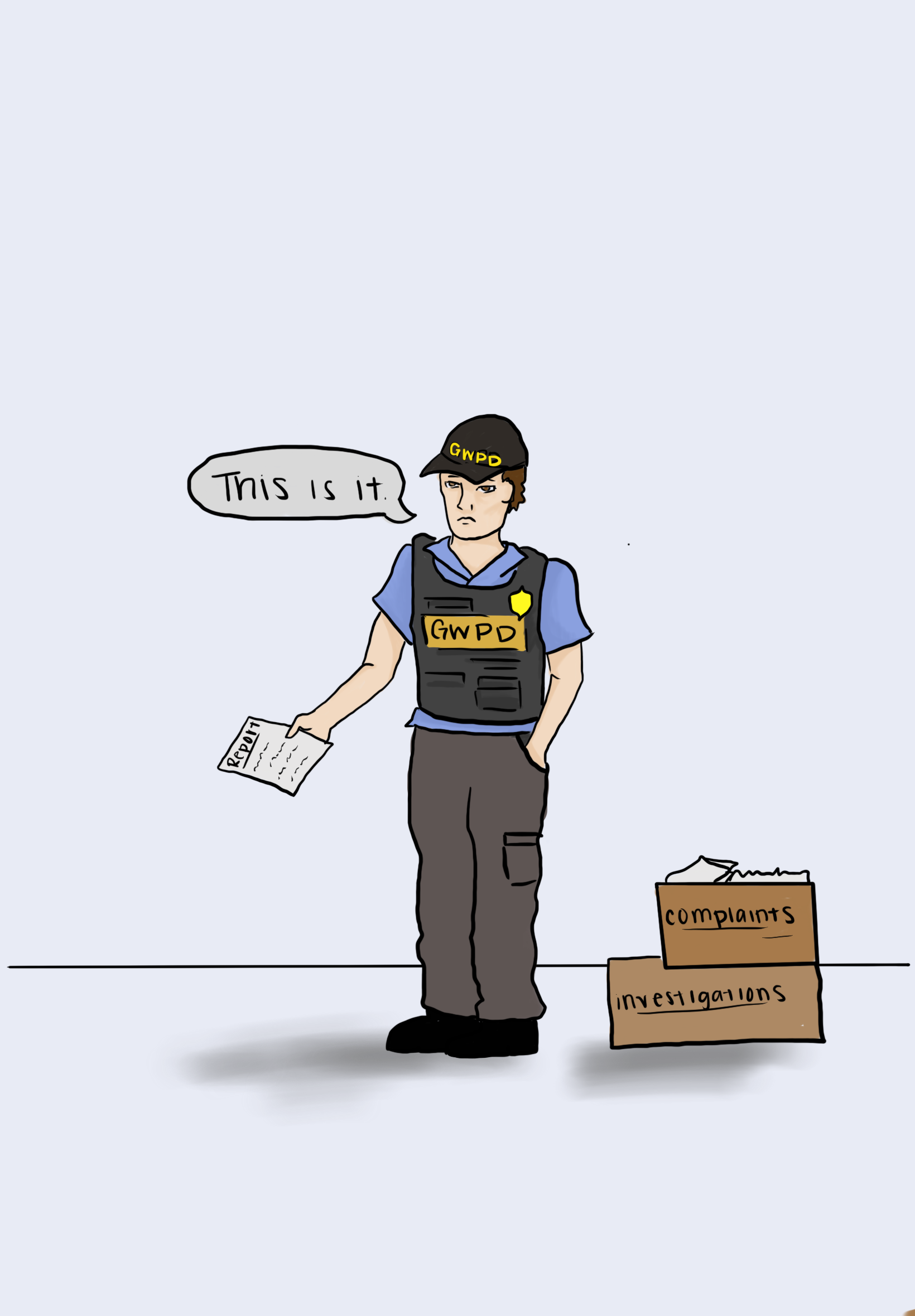Amid increased student advocacy around campus policing and a reinvigorated national conversation about police misconduct, the GW Police Department released a report outlining three years’ worth of complaints made against the department.
The report, which spans from 2018 to 2020, shows a decline in overall complaints and internal investigations since a 2018 peak. Releasing this data is an important first step for GWPD to demonstrate transparency and accountability. But it is just that: a first step. Along with the reforms the department is already working on, like requiring officers to carry body-worn cameras and upping training hours, GWPD should commit to releasing reports like this regularly and with more detail about specific infractions.

Hannah Thacker| Opinions Editor
Reform from GWPD has been a long time coming. A 2020 incident in which a GWPD officer appeared to shove a student down a flight of stairs during a protest accelerated calls for more oversight and accountability. Fortunately, many of these calls have been listened to. Under the tenure of GWPD Chief James Tate, who took office last year, body cameras have been introduced and improved bias and de-escalation training has been rolled out for all officers. The release of this year-end report is a solid addition to this suite of reforms and outreach.
But while releasing the report shows effort and good faith, the data’s practical applications are somewhat limited. Firstly – and this is not in any way the department’s fault – the pandemic means that figures from the year 2020 are functionally useless for assessing trends. The number of complaints and internal investigations did decline from 2018 to 2019 and from 2019 to 2020, but there were only two months of normal campus operations in 2020. Whether or not the number consistently declines in a post-pandemic environment will be an important way to gauge the effectiveness of GWPD’s reforms. The department should commit to releasing these reports regularly – on a yearly, quarterly or even monthly basis – so the GW community can see these trends over time.
The report also only reveals the number of complaints and investigations rather than a detailed breakdown of the types of complaints or the outcomes of investigations. In 2018, there were six “Conduct Toward Citizens” complaints – a category which includes “[a]llegations of rudeness, lack of courtesy or treatment of others, excessive force, biased policing, harassment, etc.” This is a broad range of potential infractions. The GW community should be apprised of the instances of each of those forms of misconduct, not just an aggregation. Granted, that category only included six total instances, all from 2018, but going into more detail about those complaints would be an important display of transparency.
It is also worth noting that not every instance of police misconduct makes it into an official complaint. Microaggressions and acts of bias against people of color often slip through the cracks of reporting mechanisms, which makes transparency and accountability in that area difficult. Stopping the problem at the source through bias training is key – and Tate, the police chief, has shown a strong commitment toward making that happen.
On the whole, GWPD has shown good faith and strong effort toward repairing relationships with the campus community through concrete reforms. This report is necessary but not sufficient to attain full transparency. But it is a solid step. The department should keep up its recent track record of constructive steps by releasing reports like this regularly, frequently and in more detail.
The editorial board is composed of Hatchet staff members and operates separately from the newsroom. This week’s piece was written by opinions editor Hannah Thacker and contributing opinions editor Andrew Sugrue, based on discussions with managing director Kiran Hoeffner-Shah, managing editor Parth Kotak, sports editor Emily Maise, culture editor Anna Boone and design editor Olivia Columbus.

